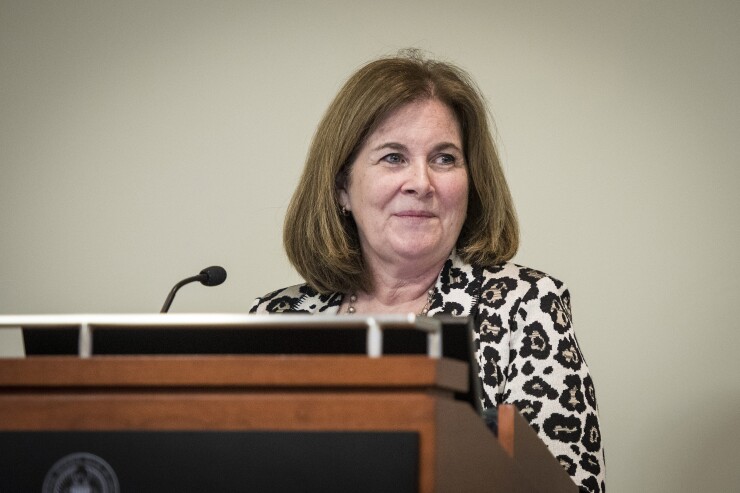Federal Reserve officials on Tuesday sprinkled small doses of concern into otherwise upbeat assessments of the U.S. economy.
Chicago Fed President Charles Evans, appearing on a panel discussion with two other regional bank chiefs, pointed to growing skilled-labor shortages. Kansas City’s Esther George said pain in the agriculture sector has been exacerbated by the trade dispute with China.

Atlanta Fed President Raphael Bostic called his district a “microcosm of the U.S. economy,” with many cities booming, but with many other “pockets of distress” being left behind by the economic expansion.
None signaled a desire to halt gradual interest-rate increases and Evans repeated his desire to see monetary policy return to “something that’s more neutral.”
Earlier Tuesday at the same event, Fed Vice Chairman Richard Clarida restated his support for continued gradual interest-rate increases as U.S. monetary policy gets closer to its optimal longer-run setting.
“As the economy has moved to a neighborhood consistent with the Fed’s dual-mandate objectives, risks have become more symmetric and less skewed to the downside than when the current rate cycle began three years ago,’’ Clarida said in a speech at The Clearing House and Bank Policy Institute conference in New York.
The remarks from Fed officials will keep expectations high among investors that the Fed will raise rates by a quarter-percentage point in December for their fourth such move this year.
Aside from Evans, the presidents made little mention of the monetary-policy outlook. However, some of Clarida’s remarks earlier in the day may feed investor skepticism over the number of rate hikes that the Fed is likely to pursue in 2019. In September, Fed officials signaled they anticipated three hikes next year.
While the world’s largest economy is robust by most measures, some signs of slowing have emerged recently, including softness in housing and in capital expenditures that had bolstered growth earlier this year. Orders at U.S. factories for non-military capital goods, excluding aircraft, were weak in October for a third straight month.





